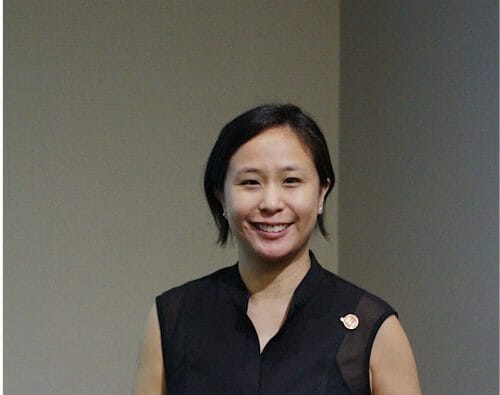With the transition into a more virtual set-up across nationwide, businesses are engaging with their employees and clients alike through platforms that have been around even prior to the pandemic, only with less frequent usage.
The pandemic which broke out late-2019, has put a stop to traditional methods that required physical interactions. Be it a 10-person meeting to flying across the country to meet a supplier, the Covid-19 pandemic has triggered a disruption changing the way we communicate and work.
Initially, employees had no choice but to work from the comforts of their homes, however this transition did not prove to be efficient for many. Some required a space that prevented unnecessary intervention and so, corporates turned to co-working spaces.
“The pandemic has changed the way we work and ushered in a new normal, and I think it’s very important we go along with that,” Stephanie Ping, Chief Executive Officer and Co-Founder of co-working space, WORQ says.
According to Ping, her customers are demanding for a more distributed work style in expanding their labour force and WORQ is enabling customers to work from multiple locations with the right suite of products.
In a move to keep up with the changing times, the co-working space has digitised their spaces as they observe more companies invest in virtual community building and virtual-themed meetings.
“Both the offline and online environment is needed in the current situation and we are here to make sure it is more distributed for these companies,” she says.
While there were initial worries that the transition towards working from home may prove to be an issue for co-working spaces, Ping and her team have been confident to deal with the ongoing issue with the utmost confidence.
“We are at an advantage because we are an innovation company more than anything else and we are here to remind people of the prosperity of working together in a space and we want to achieve that by using real estate,” Ping says.
Co-working spaces, as the Co-Founder points out, offers flexibility. “Why would you want your employees to sit there the whole day and do nothing when they can maximise their time from different locations.”
The distributed workforce concept also frees companies from tying themselves down with a three-year lease. Ping says companies are starting to realise that at times you might only need a space for three months rather than three years.
“It’s expensive renting a space that does not get used as much as not all working methods requires employees to work within the office space the whole time. And not every company is aware of this, there is still a traditional mindset at large for the need of a space,” she tells BusinessToday.
WORQ is also seeing a lot more companies this year demand space to fulfill their distributed workforce and they are looking to reduce both costs and risks.
“Now is the period for companies to figure out their needs and we are here to help them with the consultation in order to produce the exact solution that they need. We have a consulting team made up of hires from Accenture, EY and IBM that studies their needs and helps them understand the right solutions that works for their workforce,” Ping says.
Additionally, WORQ also allows for a trial period for companies to try out the space so its consulting team can gather data and observe patterns, allowing them to tweak the right solutions for the companies.
And as we enter the new normal, the modern day workforce has also evolved to fit right in. The Co-Founder believes that the new trends will look at more people using private workspaces for quiet time and work and with a distributed workforce, more employees could see co-working spaces a way to cut down on travel periods.
“We have an internal KPI to reach 1 million sq ft in five years and within the next year, we aim to double this goal. The market is huge and we have a model that works allowing us to continue expanding and fulfill the market demand,” Ping says.
The co-working spaces has also had support for expansion from the banking sector as well as their equity investors, proving the confidence their investors have in their model. “In the last round of funding we got seven of them to reinvest so that will help us to give us the right support along with the right balance sheet to expand,” she shares.
And with news of mass vaccinations around the corner, Ping says we will find more companies looking do distributed work, save money, reduce risk and even look to increase collaborations. She further highlights that more freelancers along with startups will look to co-working spaces as an option in invest.









